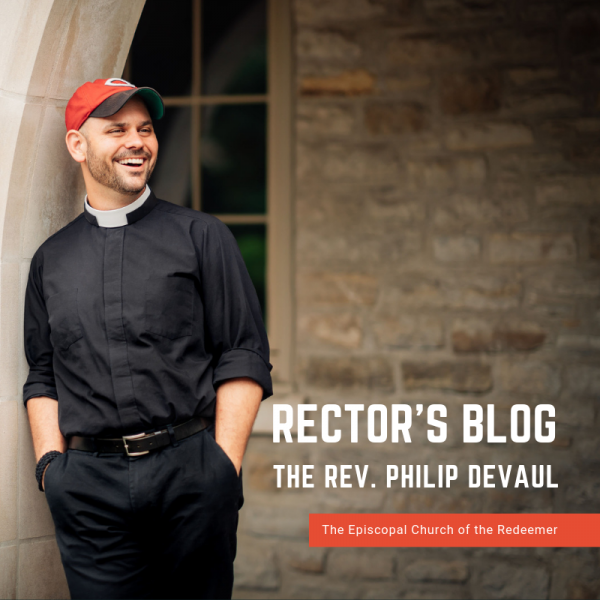Rector's Blog: Learning to Love

Last year when we were introducing the Becoming Beloved Community initiative to Redeemer, I devoted a class to the Biblical basis for racial justice, healing, and reconciliation. More than one person came to me afterward with a response that amounted to, “Why do we need the Bible to justify doing the right thing? Can’t we just say this is right and then do it?"
And the thing is, the answer is no. Not really. We can't.
Redeemer is a Christian church, and as a Christian church, we are profoundly connected to the Bible. We say it is authoritative in our shared life – that it carries immense weight in our community and is a defining feature of our existence as a people. There are countless organizations in the world that are doing good work, and they can justify or understand their work through whatever lens or authority that makes sense to them. The Christian Church calls Jesus Lord. Our primary purpose is to follow Jesus. The Bible is essential to our understanding of how we live into that purpose.
My concern is that I see thoughtful Christians who want to do good in the world, who want to know Jesus and grow in love, who want to do the work of justice and mercy – and they think the Bible gets in the way of that. And I get it. I have seen the Bible twisted and misused. I have seen people use the Bible as a weapon rather than a beacon. I have heard words from the Bible invoked to harm others, or to end a discussion rather than to start one. There is a temptation among many of our siblings to disregard Scriptures when they are bothersome to us, and just appeal to the need to “be a good person” or to “do the right thing".
Here’s the deal though: I’m not going to spend the bulk of this blog trying to convince you of the authority of the Bible. I have a different interest.
If I had one goal for the entirety of my vocation as a priest, it would be that more people would comprehend the breadth and length and height and depth of God’s love for them. That’s what I want more than anything in this work.
But if I had to pick a second goal, it would be that more Christians read the Bible.
Wait, really? Yes! Because in my experience the more I read the Bible the more I understand God’s love for me, for you, and for this world.
The Bible exists in the life of the Church to point to who Jesus is. That’s why it matters to us. And the more we understand who Jesus is, the more we understand God’s love.
I cannot speak for you, but the more I understand God’s love, the more energized I am to work for justice and mercy. The more I understand the love of God – specifically the love of God in Jesus Christ as described in the Bible – the more I thirst for racial justice. The more I read the Bible, the more I am moved to advocate for and support our LGBTQ+ siblings. The more I read the Bible the more I am convicted that we have a responsibility to end homelessness. The more I read the Bible, the more I want to be present to my wife, to be attentive to my children, to be honest with myself about my own beauty and sinfulness. The more I read the Bible, the more I love you. The more I read the Bible the more I love this world and want to partner with God in its stewardship.
Our goal as Christians is not to do good things and then use the Bible to justify ourselves. Our goal as Christians is to enter into deeper relationship with God through Jesus Christ. It is in that relationship that we experience the breadth and length and height and depth of God’s love, and out of the abundance of that love, we are given eyes to see God’s presence in the world, and the strength to partner with God in the holy work of reconciliation. Or, as Bishop Michael Curry puts it, “By reading and reflecting on scripture, especially the life and teachings of Jesus, we draw near to God and God’s word dwells in us. When we open our minds and hearts to scripture, we learn to see God’s story and God’s activity in everyday life."
My relationship with the Bible helps me see God in you, helps me recognize your beauty, your belovedness and essential belonging to the God who made you. This is how we learn to love.